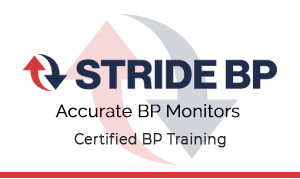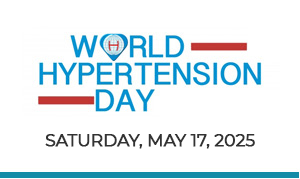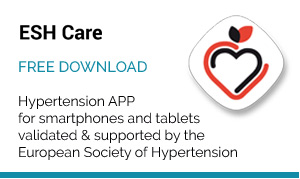Hypertension 2008
Bye Bye Beta-Blockers? While some hypertension guidelines (e.g. ESH/ESC 2007) still recommend beta-blockers as first-line drugs in the treatment of primary hypertension, investigators are asking whether it’s time to say farewell to beta-blockers in this setting. Clearly, these drugs should not be combined with diuretics and should not be given to patients with metabolic syndrome. On Monday, Lars H. Lindholm, Bo Carlberg (both Umeå University Hospital, Umeå, Sweden) and Ola Samuelsson (Sahlgrenska University Hospital, Göteborg, Sweden) questioned what role these agents should play as a first-choice therapy.
In their meta-analysis of 127 000 hypertensive patients, beta-blocker treatment reduced the risk of stroke compared with placebo or no treatment but it also increased the risk of stroke compared to other antihypertensive agents. There were no differences in myocardial infarction or mortality. This suboptimal effect of beta-blockers was most pronounced, they said, for atenolol.
Their findings, based on studies of primary hypertension, have been confirmed by others, such as the Cochrane library and the National Institute for Health and Clinical Excellence (NICE) in the UK. Their conclusion: beta-blockers should not remain first choice in the treatment of primary hypertension.
What’s the problem with beta-blockers? In terms of metabolic issues, they pointed to the ALPINE study and the LIFE trial that showed fasting insulin, glucose, triglycerides, and the incidence of diabetes all increased significantly in patients treated with beta-blockers and thiazide diuretics compared with newer drugs such as angiotensin-1 receptor blockers.
Newer beta-blockers, such as carvedilol or nebivolol, have vasodilating and not vasoconstricting effects, which may positively affect central aortic pressures in a similar way to diuretics, calcium-antagonists and ACE-inhibitors, a feature missing from older beta-blockers. However, they noted that new randomised controlled trials are required to test if these newer drugs will do better than the older beta-blockers on clinical outcome.
Although younger patients who have high sympathetic drive and cardiac output might theoretically benefit from beta-1-blockade, existing trials provide few endpoints in this age group. Moreover, even though the meta-analyses of beta-blocker treatment in primary hypertension are based mostly on patients aged 60 and above, they added that they see no reason “why our concern should not apply to younger hypertensive patients as well. There is no support in the literature for any better effect of beta-blockers on clinical events in the younger patients.”
Related source: Williams B, Lindholm LH, and Sever P. Systolic pressure is all that matters. Lancet 2008; DOI:10.1016/S0140-6736(08)60804-1. Available at: http://www.thelancet.com
Interview
Only systolic blood pressure drives cardiovascular risk
New paper sets the starting point for a paradigm shift
On June 17, a paper by Bryan Williams, Lars H. Lindholm and Peter Sever was published online in the , which was peer reviewed and fast-tracked to publication in only four weeks, probably because it has the potential to revolutionize hypertension management. They key massage is, that we should only focus on systolic blood pressure in diagnosis and treatment control of hypertension, at least in patients aged over 50. We asked one of the leading investigators, Prof. Peter Sever from London, to comment on the new study.
What is the evidence for the predominant role of systolic blood pressure in increasing cardiovascular event risk?
Sever: If You look back at the epidemiological data on blood pressure and cardiovascular risk, for many decades it has been very clear that systolic blood pressure, particularly in all those over the age of 50, is a much better predictor of cardiovascular disease in general and coronary heart disease and stroke in particular than diastolic blood pressure. But for historical reasons doctors have tended to focus on diastolic blood pressure measurement and were often ignoring high levels of systolic blood pressure.
Is it only epidemiological evidence or also reflected in endpoint trials?
Sever: There is very good trial data which demonstrates, that if you take people with isolated systolic hypertension and lower the systolic blood pressure, you will improve cardiovascular outcome substantially. This was shown in the SHEP study, in Syst-EUR, in Sys- China and the MRC trial. So, we have got a good evidence base that treating systolic hypertension is beneficial.
Why did earlier trials focus on diastolic hypertension?
Sever: It you go back to the text books of the 30s and 40s, they all talk about diastolic blood pressure and ignore systolic blood pressure. They regarded an increase of systolic blood pressure as a normal ageing phenomenon due to stiffening blood vessels. This concept led to the proposal, that the systolic blood pressure target should be “100 plus age”.
Are there still patients, in who diastolic blood pressure matters?
Sever: Yes, certainly younger patients. In people in their third or fourth decade of life, diastolic blood pressure is a better predictor of cardiovascular risk. An elevated diastolic blood pressure in these people probably tells us, that they are getting systolic and diastolic hypertension when they grow older. This is especially the case in young obese patients. But we don’t have any evidence for the benefits of just treating diastolic blood pressure.
Does that mean, there is no need for treatment, if diastolic blood pressure is elevated and systolic pressure is well controlled?
Sever: That pattern really refers primarily to younger patients. In epidemiological studies, isolated diastolic hypertension does confer a slight increase in cardiovascular risk. But whether to treat isolated diastolic hypertension is very much a matter of debate at the moment. We have looked specifically at a population with blood pressures below 140 mm Hg systolic and between 90 and 100 diastolic. There is no evidence of benefits from treatment other than the fact, that you might delay the development of more severe hypertension as they get older.
What are your recommendations for hypertension management in daily practice?
Sever: I think, it is absolutely vital, that both, the primary care physicians and the patients know their “number”. And that number is the systolic blood pressure for the vast majority of people over the age of 50. The targets for diagnosing hypertension and deciding whether to treat it, should always be based on systolic, and not diastolic blood pressure.
The drug regimens we use today, are they suitable for lowering systolic blood pressure effectively?
Sever: Most of the drugs that we use, act to relax blood vessels. And they act predominantly on the small resistance vessels. Therefore, they preferentially lower diastolic blood pressure. They do contribute to the lowering of systolic pressure, but they are not as effective in that as in lowering diastolic blood pressure. Ideally, new drug development should be targeted on systolic blood pressure. We may need completely different classes of drugs that will lower systolic rather than diastolic pressure.
What are your recommendations for designing future trials?
Sever: I think, the Nr.1 trial should be a trial called the Systolic Hypertension Optimal Treatment (SHOT) trial. The HOT trial some years ago looked at different treatment targets for diastolic blood pressure. The results were a bit inconclusive. What we need to know is, what is the optimal systolic pressure. So, we need to randomise people with systolic and with systolic/ diastolic hypertension into two groups and treat their systolic blood pressure to a target of 140 mm Hg or 120 mm Hg and see, what the difference in outcome will be. That kind of study really needs to be done. I hope, somebody will pay for it!






